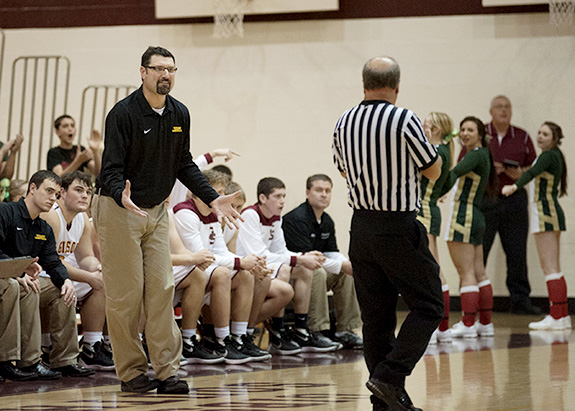School District Looks For Teams To Fundraise 10% Of Budget Rather Than Moving To Pay-To-Play
Superintendent Lew Collins told the board the district is “$700,000 to $1 million in the hole before we begin” budget deliberations for 2012-2013.
His comments were made as the board considered a recommendation by its activities committee to require that every varsity team raise 10 percent of its budget through fundraising. Athletic Director James Leonard said that would amount to about $30,000 to $40,000 for the next school year.
“In life there are no free rides,” Board Chairwoman Esther “Tess” Kilgour said.
The chairwoman said she would prefer this plan to any proposal to require a pay-to-play system where there would be a charge for students to participate. She also reminded the board that the district promised an expansion of extracurricular activities as part of the consolidation of School Administrative Districts 5 and 50 three years ago when RSU 13 was created. She said the added revenue from teams raising the money would allow that promise to continue without additional expense for taxpayers.
Collins noted that some districts charge students to park on school parking lots or put advertising on school buses in order to offer relief to property taxpayers.
Board member George Emery of St. George said sports is an important part of a comprehensive education and he would like to see the programs paid for in the budget and not require fundraising.
Board Vice Chairman Loren Andrews of Cushing urged the board to take its time before imposing a fundraising requirement.
“We should slow down and make it part of the overall budget discussions,” Andrews said.
Business Manager Scott Vaitones said Friday that the administration expects to present the proposed 2012-2013 budget to the board on March 25.
The board eventually voted narrowly to postpone action on the fundraising requirement.
Vaitones said Friday the district expects to lose $100,000 to $200,000 in state aid and that fixed expenses such as salary and benefit increases will lead to the $700,000 to $1 million hole referred to by the superintendent.
He said the administration will work to bring in a budget that shows no tax increase to property owners and allow the board to see what would happen with that scenario.
The largest expense in the budget involves personnel costs. The current teacher contract for the district expires next summer and negotiations on a new one have yet to begin. The current contract has a pay range of $34,497 to $60,800 depending on years of service and level of education.
Even without a budget increase, Rockland residents would see a property tax increase because the community’s share of RSU 13 is increasing again next year as part of the cost-sharing formula agreed to when the school district was formed. The formula makes communities with more students pay a larger share and Rockland has by far the most students within the six-community district. The other towns in RSU 13 are Thomaston, St. George, Owls Head, South Thomaston and Cushing.
In other action Thursday night, Collins announced the creation of a task force to deal with the problem of chronic absenteeism and tardiness at the elementary level.
The task force will begin meeting in January, with Andrews chairing the panel.
Collins said he would like to have the state education commissioner and human services commissioner attend.
“Our hope is to see how we may best utilize the existing [Maine Department of Health and Human Services] in-home case managers and behavioral support professionals to encourage parents to become more involved in their child’s education and to obviously improve attendance at school. Children as young as 6 years old being chronically absent and tardy is simply too sad a reality,” Collins said Friday.
Andrews said this is a primary issue for the district and students.
“As students obviously cannot engage and learn if they are not in school. I am very impressed by Lew for wanting to take this on right away, and I see it as a springboard to examine other critical issues like this in the future,” Andrews said Friday.







